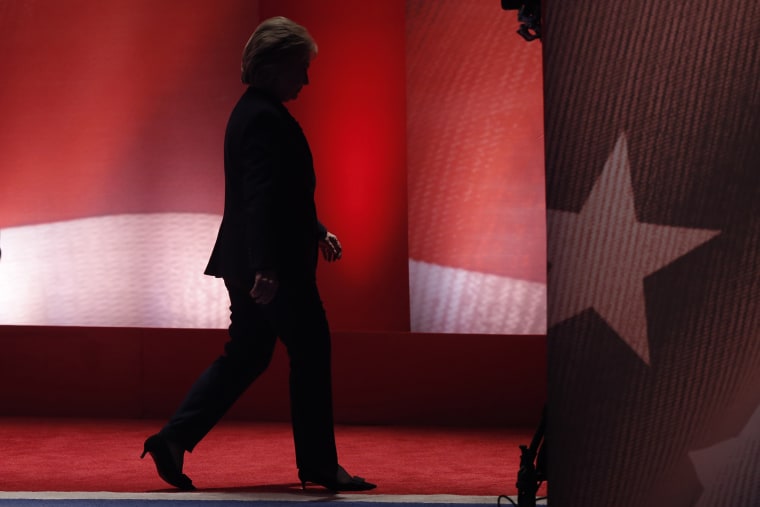Appearing Sunday morning on NBC’s "Meet the Press", former Secretary of State Hillary Clinton dealt gingerly with her Iraq War vote as she responded to a question about whether the American invasion thirteen years ago set the stage for the rise of ISIS.
“Well, I think that’s a hard conclusion to draw, because remember we had al Qaeda before we had ISIS,” Clinton said. Clinton added that al Qaeda had, by the start of the Iraq War in 2003, already launched 9/11 and before that had attacked U.S. embassies in Africa.
Pressed on whether the violence that followed the American removal of Iraqi dictator Saddam Hussein could be tied to the conditions that gave rise to ISIS, Clinton held firm.
“I think that’s a lot of jumps in logic that to me doesn’t really add up,” Clinton said. “The Iraq War, there’s no doubt, contributed to instability. I’m not going to in any way deny that. But you cannot draw a direct line.”
The remarks underscore trouble that Clinton continues to have addressing her 2002 vote as the U.S. senator from New York authorizing the Iraq War.
Clinton has in the past argued that ISIS was given rise out of sectarian tension stoked by Iraq’s former prime minister Nouri al-Maliki after U.S. troops left the country in 2011. Maliki, a Shiite, purged the government of prominent Sunnis, sparking unrest among Sunnis. Clinton has said ISIS recognized a vacuum and stepped in.
RELATED: Sanders: ‘Judgment’ as important as foreign policy ‘experience’
This is true, in part. But as a former secretary of state, Clinton likely also knows how closely the Iraq War itself is tied to ISIS, no matter how directly or indirectly one wants to trace that line. Abu Bakr al-Baghdadi, the leader of ISIS, spent time in a U.S. prison in Iraq, where he mixed with other jihadists and, by the accounts of experts and witnesses, hardened his outlook and sharpened his craft.
Al-Baghdadi’s notorious brutality is also a matter particular to the dynamics of the Iraq War. Although the organization al-Baghdadi took over in 2010 was once called al Qaeda in Iraq, the central leadership of al Qaeda had long determined that, even by their standards, their affiliate group in Iraq was too violent.
Clinton’s opponent, Vermont Sen. Bernie Sanders, has acknowledged that Clinton is more experienced on foreign policy, but he recognizes that Clinton is in awkward position. “It is not just experience that matters, it is judgement,” Sanders said on "Meet the Press," in an interview following Clinton’s.
It’s a familiar refrain from Sanders, who is never shy about reminding voters that he chose to vote against the Iraq War. Though Sanders faces criticism for offering little in the way of foreign policy details beyond attacking Clinton’s Iraq War vote, his censure has sticking power nonetheless.
“We should learn the lesson of the Iraq War,” Sanders said Sunday.
While Clinton may be impressively fluent on the dark intricacies of Iraq’s recent political history, the Iraq War does have its lessons. And Clinton may need to discuss them if she wants to shake the charge that those lessons took shape because the U.S. military was given the go-ahead to roll into Baghdad.
